The Olympian gods play an important role in Homer's Iliad. Their nature and power provide the setting in which the heroes act, and their interventions in human affairs decisively shape the plot of the epic.

NO PERFECTION HERE
The Greek gods definitely were not perfect. They could be spiteful, cruel, jealous, and deceptive— rather like human beings. They had their own particular concerns. These were related to that aspect of human life (love and war, for example) or the natural world (sea and sun, for example) over which each deity was thought to hold sway. The gods also played favorites among mortals, helping or harming as they saw fit. So, while they were immortal, they were not all-powerful. Zeus, the king of the gods and the god of the sky and thunder, ruled over all the deities from his lofty seat atop Mount Olympus, restraining them when their quarrels threatened to overthrow the order of the world. Still, the gods often sought to escape his control through trickery and disguise.
Esta historia es de la edición October 2017 de Dig Into History Magazine for Kids and Teens.
Comience su prueba gratuita de Magzter GOLD de 7 días para acceder a miles de historias premium seleccionadas y a más de 9,000 revistas y periódicos.
Ya eres suscriptor ? Conectar
Esta historia es de la edición October 2017 de Dig Into History Magazine for Kids and Teens.
Comience su prueba gratuita de Magzter GOLD de 7 días para acceder a miles de historias premium seleccionadas y a más de 9,000 revistas y periódicos.
Ya eres suscriptor? Conectar

Worshiping Heaven
For almost 500 years, emperors of the Ming and Qing dynasties offered sacrifices and prayers at the Temple of Heaven in Beijing.
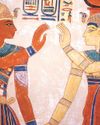
Peace Reigns
The news spread throughout Egypt—a new pharaoh, Ramses III, now sat on the throne.
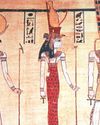
Problems To The East
Ramses III, the second king of Egypt’s 20th Dynasty, is viewed as Egypt’s last truly great pharaoh.
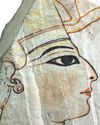
The Successors
Following the death of Ramses III, eight pharaohs, all named Ramses, ruled Egypt.
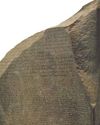
Stone Code
Hundreds of ships, led by the French general Napoleon Bonaparte, sailed from France in May 1798 on a secret mission.

Up & Away!
Eclipse observers often face unexpected difficulties, sometimes on their way to their chosen sites and sometimes at a site itself.

Edison's Eclipse Adventure
Thomas Edison (1847–1931) is the best-known inventor in American history.
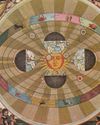
Digging Up Copernicus
The scientist “who made the Earth a planet” is how the Harvard-Smithsonian astronomer Owen Gingerich refers to Nicolaus Copernicus (1473–1543). Copernicus’ path breaking book, On the Revolutions of the Heavenly Spheres,challenged the centuries-old belief that the Earth stood stationary at the center of the cosmos.
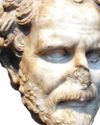
Demosthenes & Cicero
Even today, more than 2,000 years after they lived, Demosthenes and Cicero are still considered two of history’s most outstanding orators.

Confucius & Socrates
Some teachers are so inspirational that their influence lives on long after they die.